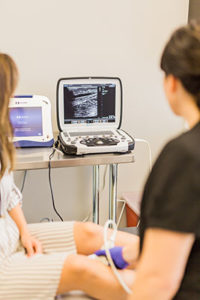Do you know your risk for leg ulcers? Lower-leg ulcers are a serious complication that can develop with untreated vein disease. In order to protect yourself from ulcers, it’s important to understand the risk factors that increase your likelihood of developing this type of wound.
One of the main reasons people develop ulcers is because of CVD, chronic venous disease. And while we don’t always know why people develop CVD, some contributing factors include: 
Any one of these factors can increase your risk of compromised blood flow, varicose veins, and, eventually, chronic venous disease. This, in turn, can increase your risk for leg ulcers. Which means you're more likely to develop an ulcer on your lower legs.
When you have high cholesterol, it builds up in your arteries. Then, plaque can narrow your arteries' lining (this condition is called atherosclerosis. The plaque is made of cholesterol and other fatty substances called triglycerides.)
Because plaque narrows your arteries, and because high cholesterol can trigger plaque buildup, high cholesterol levels increase your risk for peripheral arterial disease (PAD). When you have PAD, your narrowed arteries limit the amount of oxygen-rich blood that reaches your legs and feet. And that's where your risk for legs ulcers also rises.
When blood flow to your legs is restricted, sores may develop as blood pools and seeps through your skin. Then, the sores that develop are less likely to heal because of your reduced blood flow. That's why you'll need immediate medical attention if you develop an ulcer on your legs.
Of course, it’s important to remember that not all people who have CVD will develop ulcers. With people who have CVD, you can watch for certain signs that may indicate an ulcer will soon form:
Whether or not you’re displaying ulcer warning signs, you can take measures to prevent this devastating complication. These steps include:
If you are concerned about developing ulcers, or already have an ulcer in need of attention, it is important to see your Houston and Dallas area vein specialist right away. Any delay could pose a serious risk to your limbs, as well as your overall health.

Scheduling
Please contact our dedicated specialists to schedule a consultation today.
2025 Texas Endovascular. All rights reserved. Website Design by Healthcare Success